Are you feeling frustrated about an unexpected charge on your telecommunication bill? You're not alone, as many consumers face similar issues when it comes to billing discrepancies from their service providers. In this article, we'll guide you through the steps to effectively dispute your telecommunication bill and ensure you understand your rights as a consumer. Join us as we explore tips and strategies that can help you resolve your billing issues smoothly.
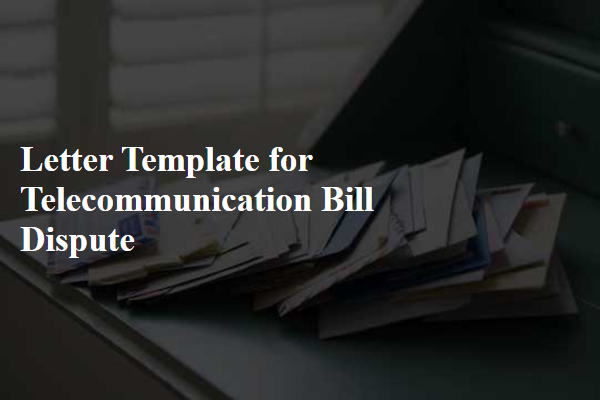
Clear customer information.
Telecommunication bill disputes often arise from discrepancies in charges, which can lead to customer frustration. Clear customer information, such as account number (usually a 10-digit identifier), billing address, and contact details (phone number and email), is crucial in resolving these disputes. Accurate service dates (start and end) should be noted, as well as itemized charges, including monthly fees and any additional taxes or surcharges. Keeping records of communications with customer service (dates and representative names) helps establish a timeline of the dispute and ensures all relevant information is presented to expedite the resolution process. Specific details about the disputed charges, including the exact amount and reasons for contesting, will further support the case.
Detailed account and billing information.
Telecommunication bills can present discrepancies in billing information, leading to disputes among consumers. A detailed account analysis is essential to identify inaccuracies in charges or services rendered. For instance, reviewing a billing statement from XYZ Telecom for the month of September 2023 may reveal issues such as unexpected fees, incorrect usage data, or erroneous charges for services not subscribed to. An account number (1234567), which corresponds to a residential package (unlimited data, local calls) priced at $79.99, might be misrepresented due to additional surcharges or taxes. It is crucial to cross-reference call records and data usage with actual service terms outlined in the contract, ensuring clarity on the agreed-upon pricing and the application of any promotional discounts. Collecting evidence, including copies of previous bills and terms of service agreements, can strengthen the case for dispute resolution.
Explicit dispute claim and explanation.
Telecommunication bill disputes arise frequently, especially concerning overcharges or billing errors. A customer may notice discrepancies when reviewing their monthly statement, which typically details various charges for services like unlimited data plans, international calls, or premium subscriptions. For instance, a sudden increase in the bill may occur after a promotional period ends, leading to an unexpected additional charge of $50 for services previously offered at no extra cost. Such situations often require explicit claims backed by detailed explanations, indicating specific line items in the bill under scrutiny, such as a $30 late payment fee, which the customer believes should not apply or a $20 access fee for services not utilized. Documentation, including previous statements or terms of service, serves as critical evidence in these disputes, emphasizing the need for clear, concise communication with the billing department of the telecommunications provider.
Supporting documentation and evidence.
A telecommunications bill dispute often requires detailed documentation to support claims. Important invoices detail monthly charges, including specific services like data, voice, and additional fees. Relevant correspondence with customer service representatives may include dates, names, and reference numbers, providing a timeline of attempts to resolve the issue. Service agreements outline terms agreed upon at the initiation of the service, highlighting any discrepancies that may have arisen. Prior bills serve as evidence of consistent charges, allowing for clear comparison against current unexpected fees. Documentation of service outages, including timestamps and durations, can substantiate claims of unreceived services, further reinforcing the dispute case. Ensuring all evidence is organized and clearly labeled enhances the effectiveness of the dispute process.
Request for resolution and contact information.
Telecommunication bill disputes often arise due to discrepancies in charges, billing errors, or unrecognized fees. Consumers should clearly outline their concerns in writing to seek resolution. It is essential to reference specific invoice numbers, account details, and any relevant dates associated with the billing issue. Providing contact information, including phone numbers and email addresses, ensures swift communication with customer service representatives. Including copies of previous correspondence (if applicable) strengthens the dispute claim, facilitating an efficient resolution process. Promptly addressing these issues aids in correcting billing inaccuracies and re-establishing customer satisfaction.
Letter Template For Telecommunication Bill Dispute Samples
Letter template of telecommunication bill dispute for incorrect charges.
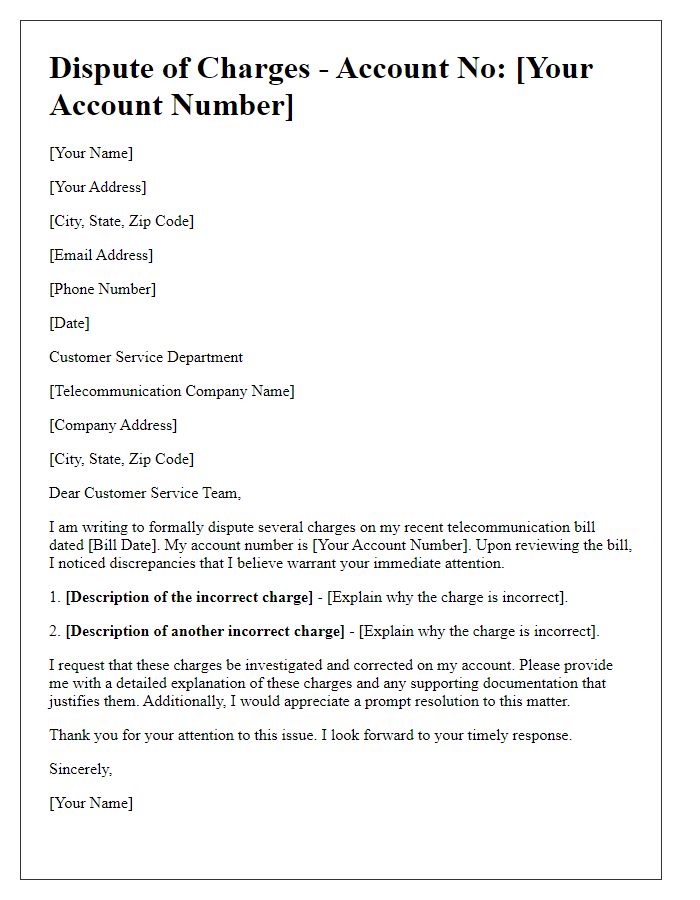
Letter template of telecommunication bill dispute regarding service interruption.
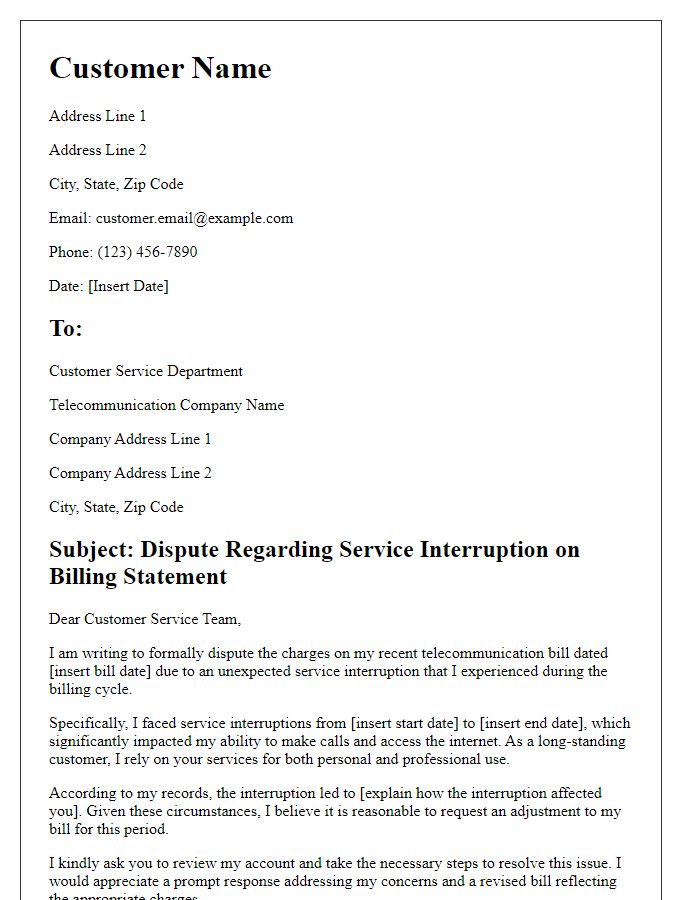
Letter template of telecommunication bill dispute due to unrecognized fees.
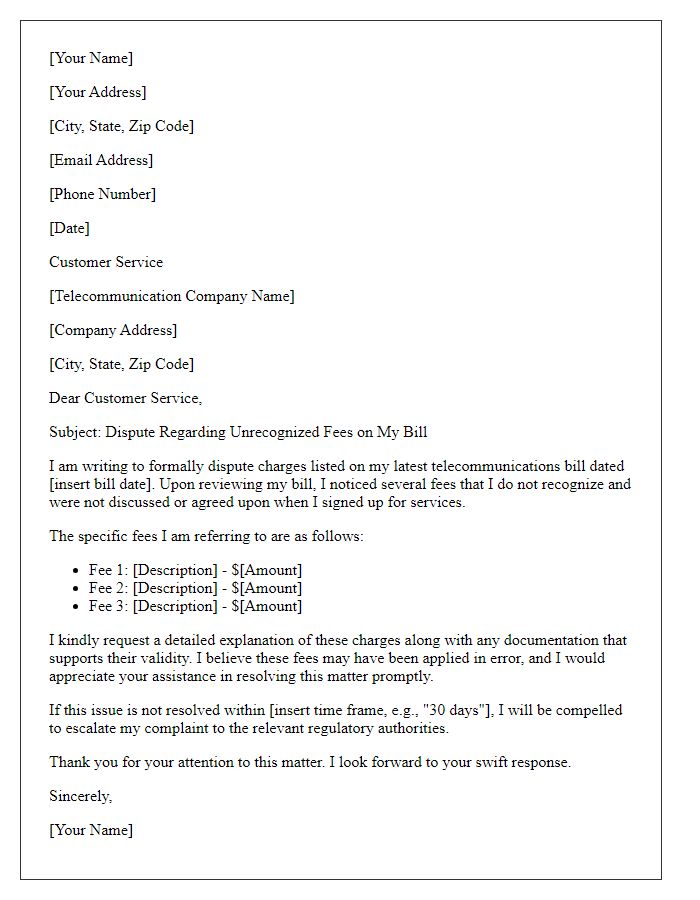
Letter template of telecommunication bill dispute for promotional offer complaints.
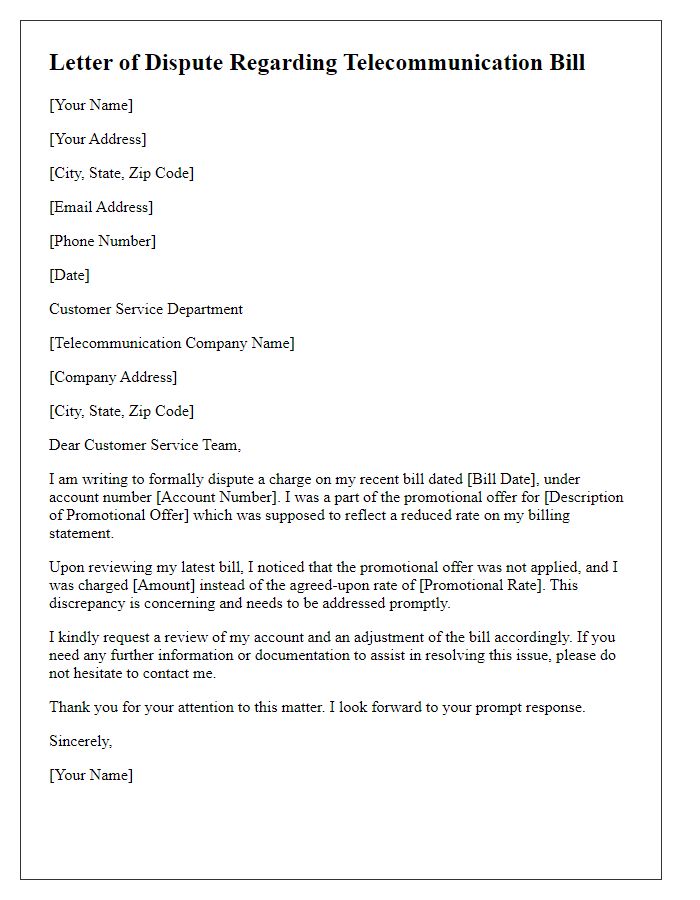
Letter template of telecommunication bill dispute based on billing errors.
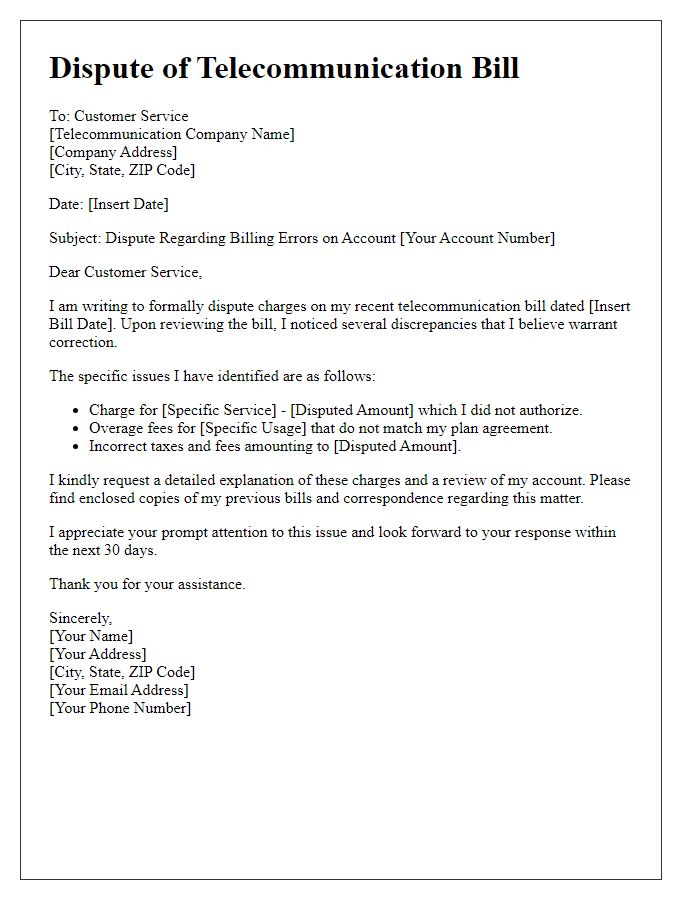
Letter template of telecommunication bill dispute for overbilling concerns.
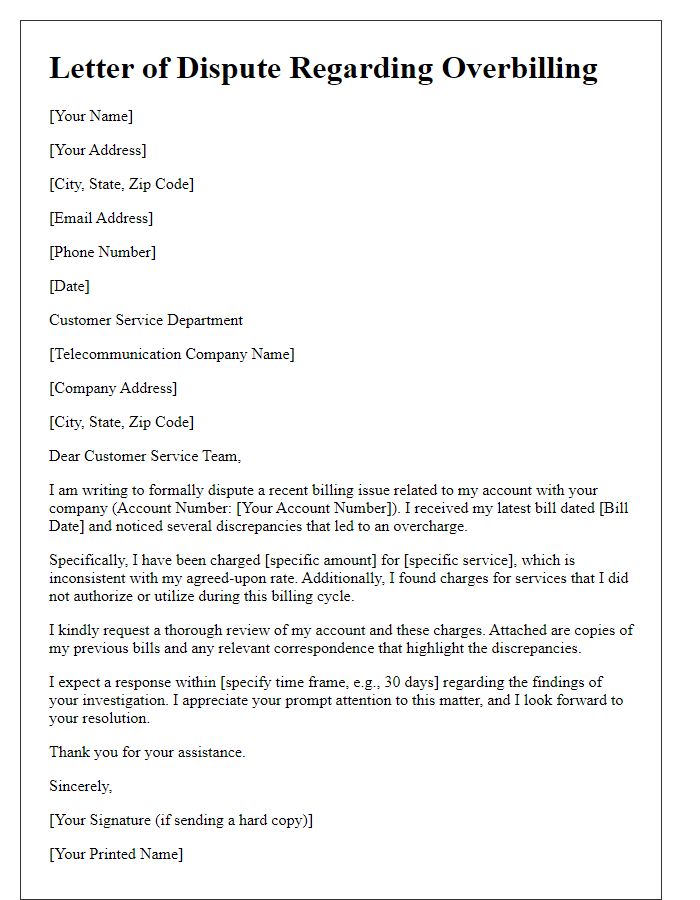
Letter template of telecommunication bill dispute related to contract discrepancies.
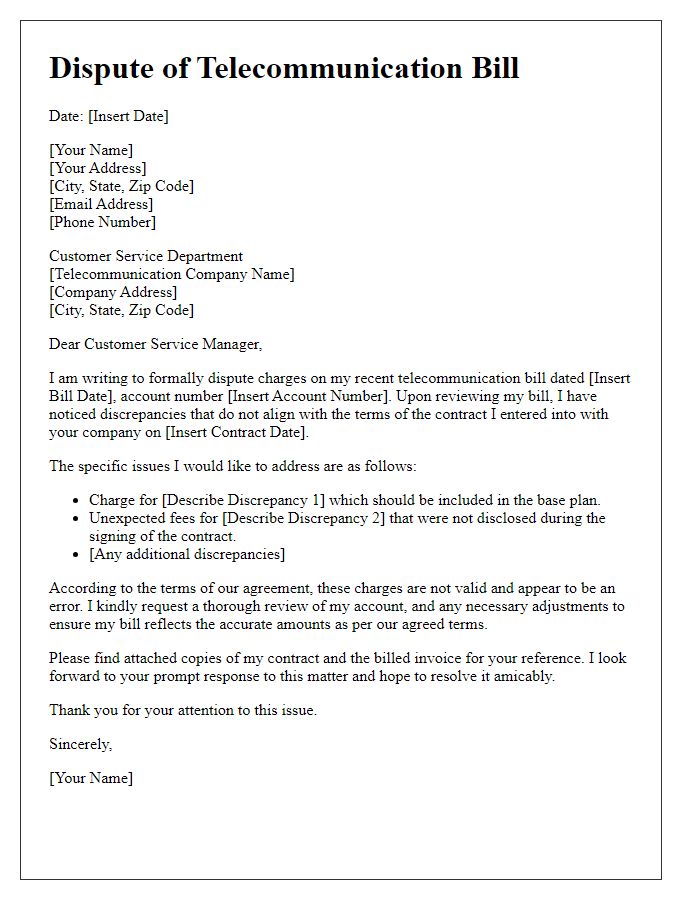
Letter template of telecommunication bill dispute over unauthorized services.
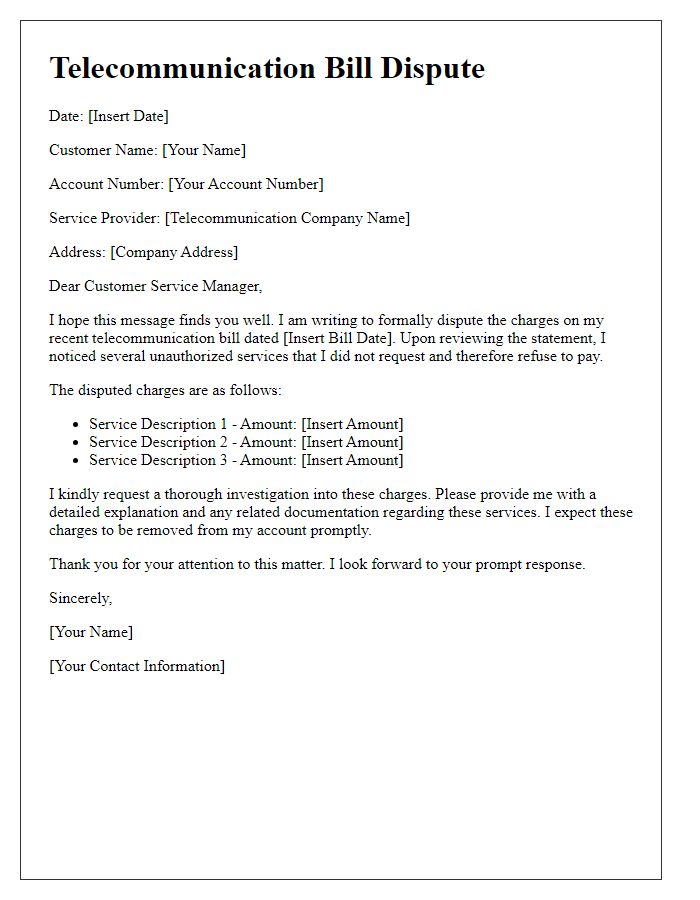
Letter template of telecommunication bill dispute for unresolved customer service issues.
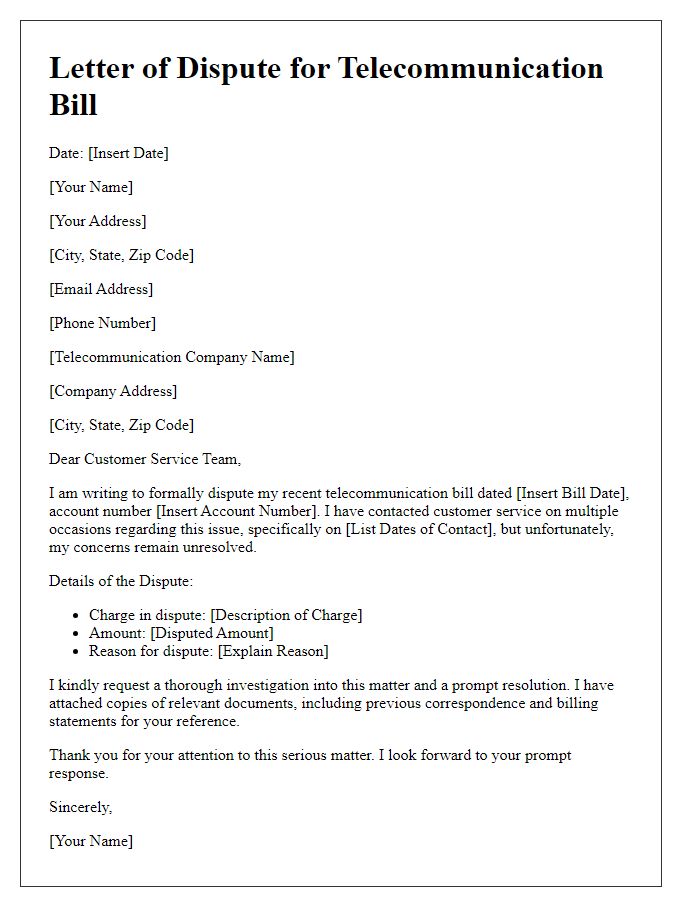

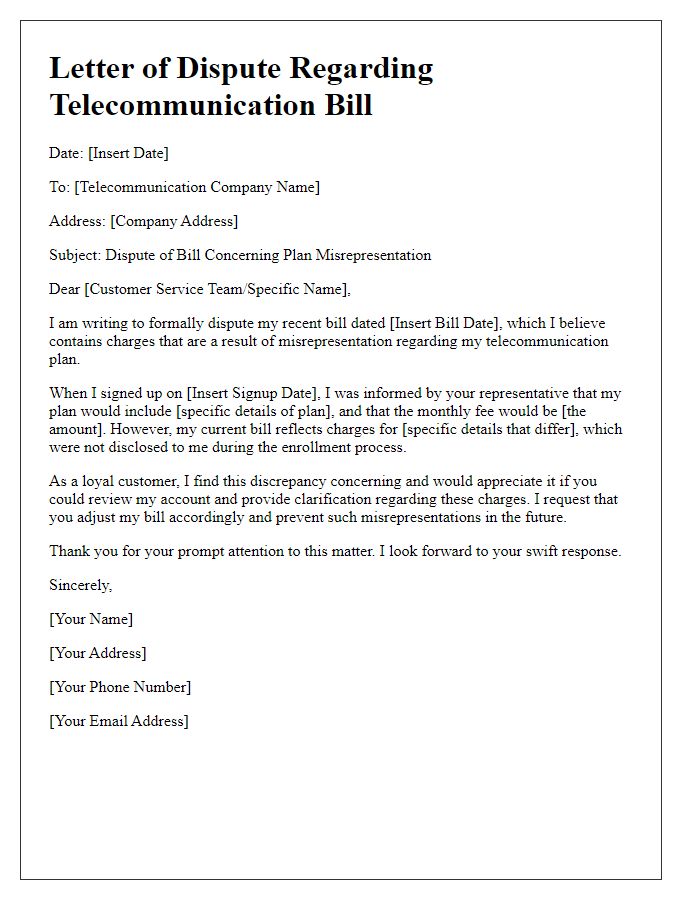


Comments